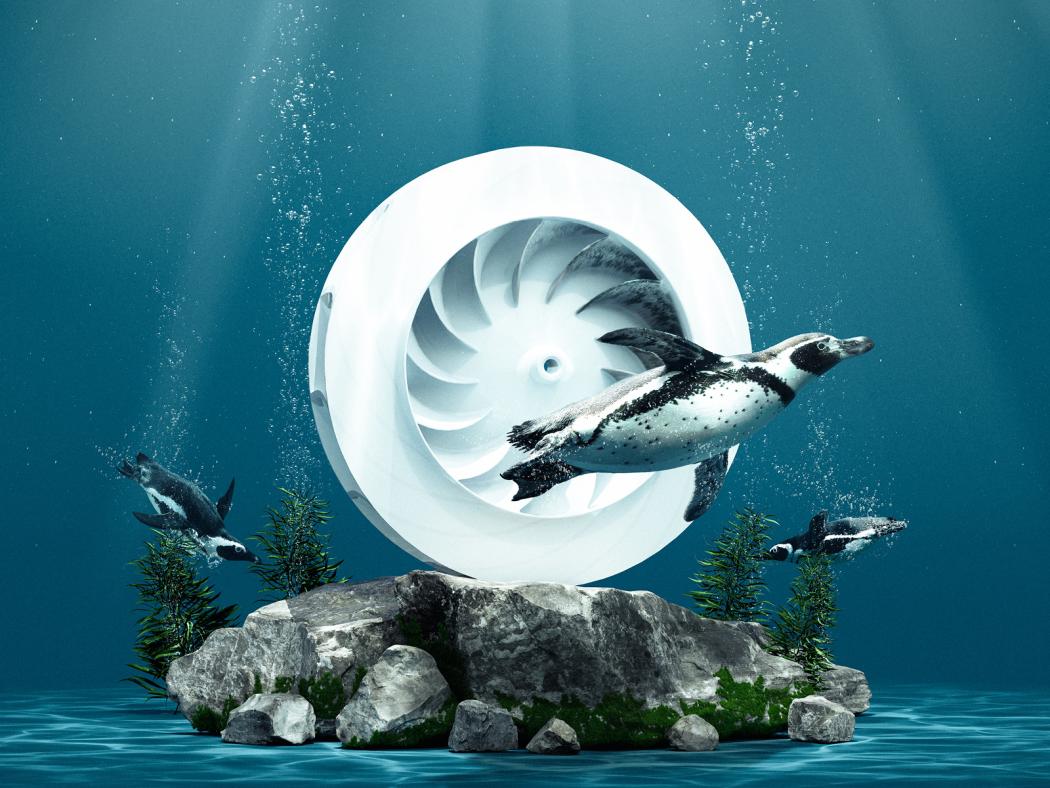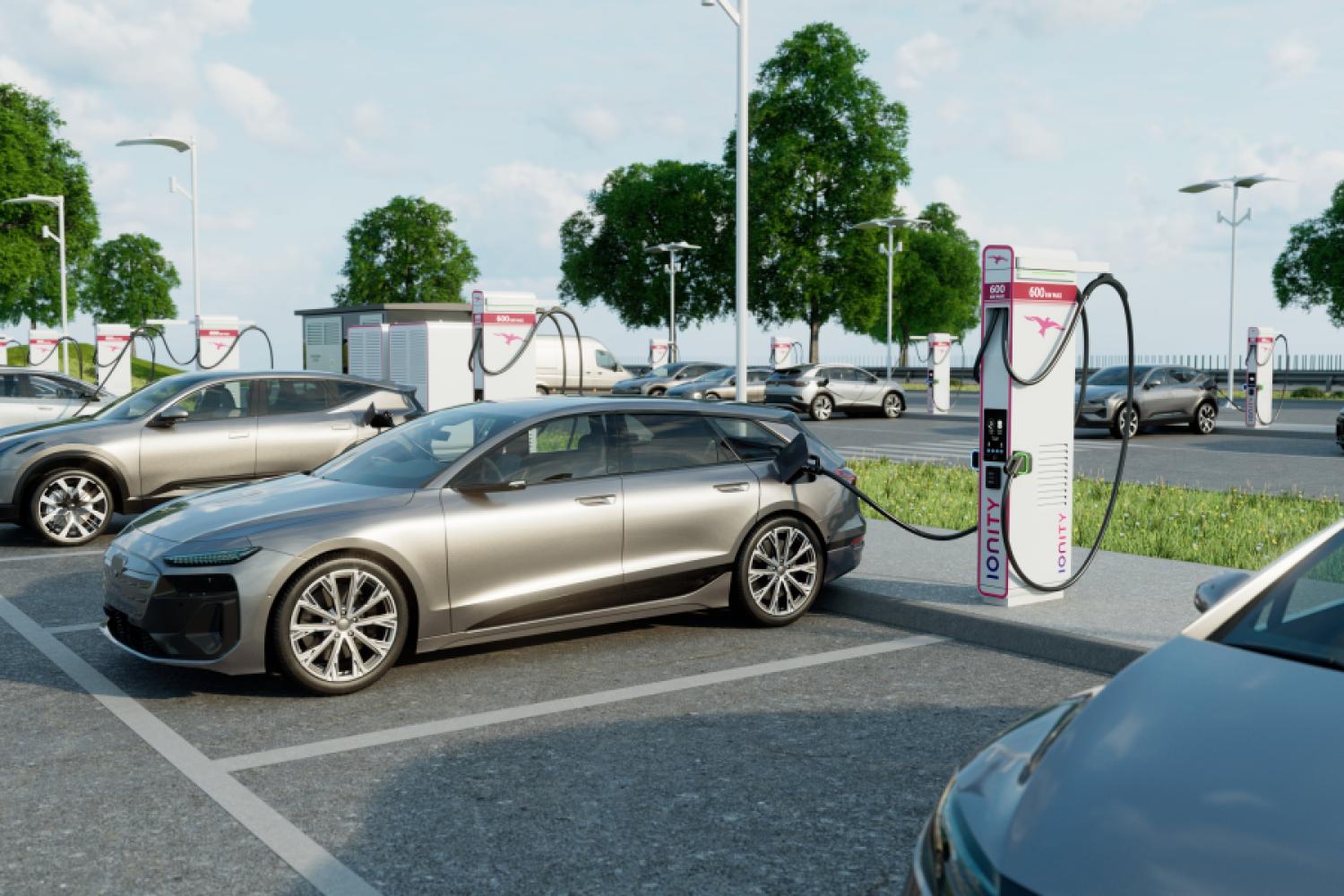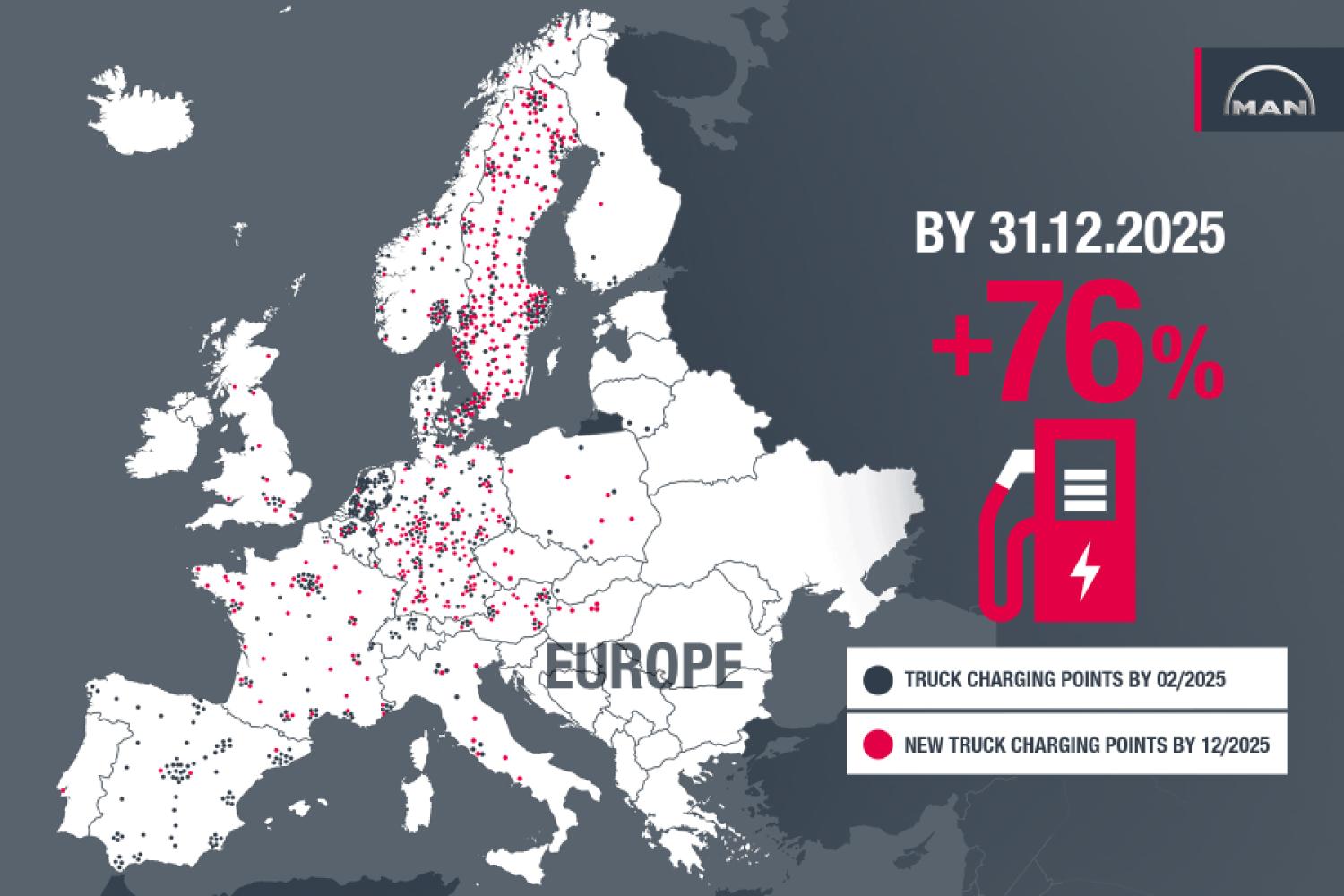Inspired by the characteristics of a penguin flipper, the Stuttgart-based supplier Mahle has optimized the radial fan design of its new air conditioning system for all vehicle classes. As an additional tool for developing the component, they also used the latest technologies. About a year ago, the company employed the bionics concept, which utilizes nature-inspired forms for new product developments (biology) and transforms them into technical solutions using the computational power of artificial intelligence (AI) (bio-nics), in the development of its new high-performance fan. Back then, owl wings proved to be a suitable model. This time, it is the penguin flipper, whose comprehensive computational analysis contributed to the design of the new fan.
Reduced Energy Demand
According to the information, the "pioneering bionic radial fan," which is suitable for passenger cars and light to heavy commercial vehicles, was specifically developed for vehicle air conditioning systems in challenging installation spaces, such as in electric vehicles. The provider promises a 15 percent efficiency increase and a 60 percent noise reduction compared to similar fans. The solution will be presented for the first time at the biennial trade fair "Auto Shanghai 2025," organized by Messe München as a co-organizer, which has been taking place in China since 1985.
“The aerodynamic shape of the fan blades is modeled after the fins of a penguin, which glides swiftly and quickly through the water,”
describes Mahle its nature-inspired concept. Compared to similar components, the corresponding design not only promises 15 percent more "efficiency" but also a reduction in noise development by 4 decibels (dB) or 60 percent. The increase in effectiveness is said to be due to the "optimized design requiring less energy."
System Competence in Thermal Management
Jumana Al-Sibai, a member of Mahle's corporate management and responsible for the Thermal and Fluid Systems division, describes the AI-developed innovation as setting a benchmark and proof of Mahle's system competence in the area of thermal management.
The new form of the radial fan was inspired by the penguin's fin, which offers little resistance to the water. This "highest efficiency" when gliding through the wet element can apparently also be applied to fan applications.
“Evolution has equipped the penguin with fins that allow it to glide through water with minimal resistance and thus highest efficiency. The fin shape served as a model in the optimization process of the impeller of our radial fan,”
says Dr. Uli Christian Blessing, Head of Development Thermal and Fluid Systems at Mahle. This nature-inspired concept was already implemented last year in the areas of ventilation and cooling with the bionic high-performance fan for electric vehicles as well as the bionic cooling plate, both of which are intended to bring about "considerable efficiency increases."
AI Tool: “Superhuman Engineering”
According to the manufacturer, the development process in optimizing the product was significantly accelerated by the "in-house AI tool." Dr. Blessing describes the process:
“Our engineers guided the AI and provided it with data and information, which enabled the creation of more than 30 million virtual designs in a very short time. Internally, we refer to this as 'Superhuman Engineering'.”
This way, it was possible to quickly develop the "perfect form and positioning of the fan blades" and implement them in prototypes.
Economical Construction
The new development is placed in front of the evaporator and allows for a symmetrical and narrow construction of the air conditioning unit, leaving more space for other components – "a significant advantage, especially in battery-electric vehicles" and thus a useful alternative to conventional variants, according to Mahle.
At Auto Shanghai from April 23 to May 2, 2025, the technology group, which currently employs around 67,700 people worldwide and operates 135 production sites as well as 11 research and development centers, wants to present not only the new bionic radial fan for the air conditioning system. Also in the trade fair luggage are the already mentioned bionic battery cooling plate for electrified vehicles and the bionic high-performance fan, which was also designed "for particularly demanding fuel cell and battery-electric vehicles." According to the announcement, Mahle's booth will serve as a venue where a demonstrator will vividly explain the connection between the electric drivetrain and thermal management.
But it seems that Mahle is not solely focused on e-vehicles. In conclusion, it states:
“Electrification, thermal management, and components for efficient, clean internal combustion engines are the three future fields that Mahle is pursuing as part of its Mahle 2030+ strategy for the future of mobility.”
Mahle Strategy 2030+
The guidelines that the Mahle Group intends to follow in the future were disclosed last year, for example, at the IAA Transportation in September 2024. According to this, electromobility is seen as an opportunity, but in light of a growing commercial vehicle business and the globally diverse conditions, it also relies on a variety of technologies.
According to Mahle's future program, the focus is on "climate-neutral mobility of tomorrow" with an emphasis on electrification and thermal management while also focusing on technologies "to reduce CO2 emissions" such as fuel cells or "highly efficient, clean internal combustion engines, which can also be powered with renewable fuels, such as hydrogen." Along this roadmap, the “Strategy Mahle 2030+” was established, which was presented exactly one year ago in April 2024, resting on three pillars:
Electrification is Not the Only Solution for an "Emissions-Free Society"
Two of the three parts focus on electromobility: The electrification sector deals with "affordable, simple, and reliable e-mobility"; and thermal management as a key factor in e-vehicles and one of Mahle's core competencies is to be expanded with highly efficient systems for batteries, efficient drives, and "sophisticated interior comfort."
The final pillar, "Internal Combustion Engines" (ICE), is intended to ensure worldwide customer loyalty in this segment where there is still demand – "because electrification will not be the only solution for an emissions-free society," the program states. And: "Mahle will drive efficiency progress in this segment with state-of-the-art products and optimize its cost structures."
In 2023, the Mahle Group reported record sales and high order intake, especially in the area of e-mobility. A year later, despite "black numbers," a significant decline in sales was recorded, as the company announced just recently in mid-April 2025 regarding the 2024 fiscal year. Weak markets in Europe and North America, as well as declining sales of individual key customers resulting in lower product demand, were cited as reasons. But the weak e-vehicle business outside of China also had a negative impact on the group's development. Among other things, the sale of shares in a joint venture reduced the number of employees compared to 2023 by around 4,660 to now around 67,700.






